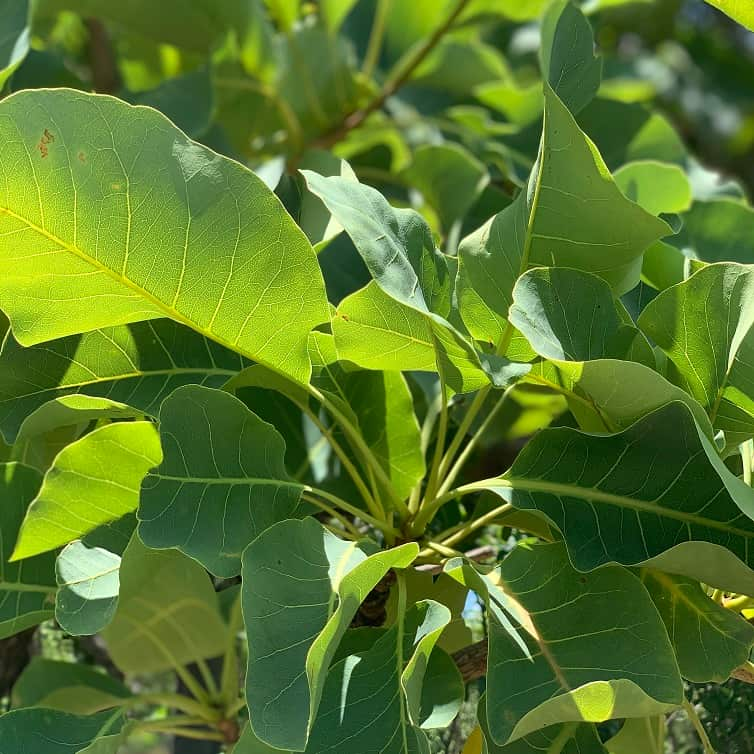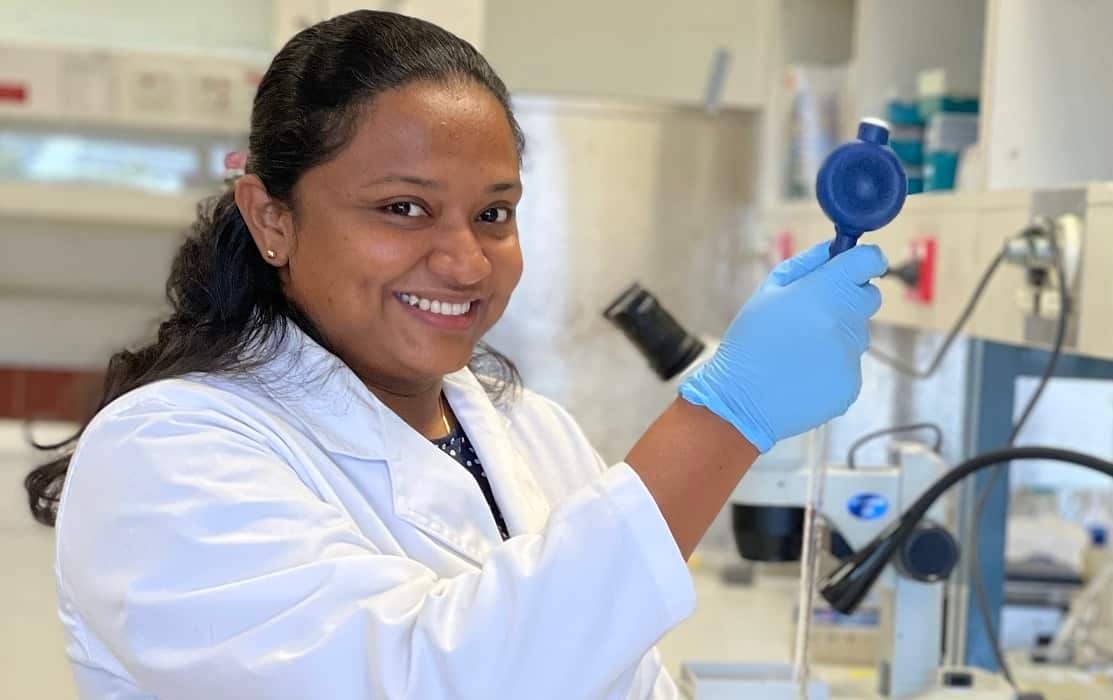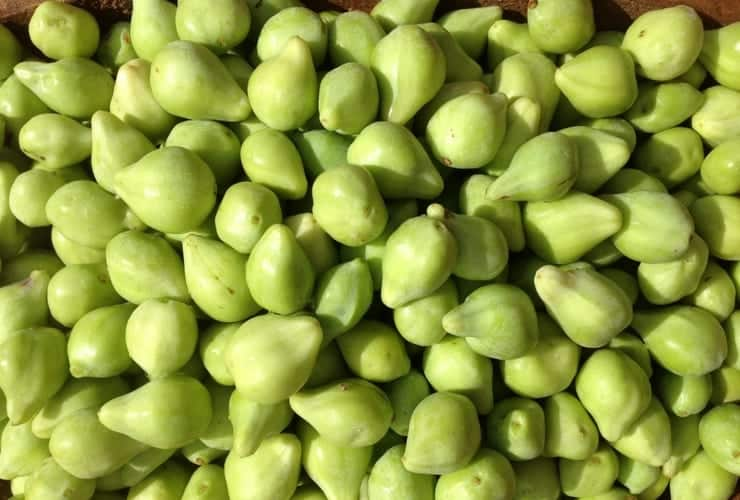Key Points
- The native Kakadu Plum’s medicinal values have been recognised by Indigenous Australians for tens of thousands of years
- The fruit is said to have the highest level of vitamin C of any food in the world
- Sri Lankan researcher Hansi Alwis hopes nanotechnology will reveal more health benefits
The Kakadu Plum, a native Australian fruit, is said to boast the highest level of vitamin C of any food in the world – 50 times that of an orange.
Capable of withstanding harsh conditions, the plant is widespread across the Northern Territory, Western Australia and the northern part of Queensland.
The tart tasting fruit is yellowish green in colour with a stone at its centre, and ranges in size from about 1.5 to 2 cm.
Indigenous Australians have long extolled its medicinal and preservative qualities, using it to treat colds and soothe aches.
In recent times, it’s been hailed as a superfood for its high nutritional value and purported anti-ageing qualities.

One Sri Lankan researcher believes the Kakadu Plum’s health benefits could be even more profound.
Hansi Alwis, a PhD candidate in the Department of Chemistry at Charles Darwin University in Darwin, is using nanotechnology to explore how the Kakadu Plum could provide a treatment for cancer cells.
She speaks to SBS Sinhala about this plant’s unique properties.
Why Kakadu Plum?
Having studied chemistry at the University of Sri Jayawardenepura in Sri Lanka, Ms Alwis says she was amazed to discover the Kakadu Plum, “a plant with medicinal properties unique to Australia”.
Hailing it as the “treasure tree of the Indigenous Australians”, she decided to make it the focus of her PhD under the supervision of Dr Vinuthaa Murthy, who leads research in computational and nano chemistry at the university..

The first step in her research has been to mix extracts from the plums and leaves of the Kakadu Plum plant with solutions of silver and gold iron to create silver-gold nanoparticles.
Ms Alwis is ready to research the anti-cancer and anti-bacterial properties of the created nanoparticles as the second step of the research.
She says she is preparing to conduct laboratory-level research with cancer cells.
What is nanotechnology?
Nanotechnology, known colloquially as the ‘science of extremely small things’, is at the heart of many modern scientific and medical advances.
It involves the study and manipulation of matter at a scale much smaller than the human eye can detect.
Ms Alwis says research using nanotechnology has yet to be carried out on the Kakadu Plum plant.
But previous research found that it has anti-bacterial properties.
"As such, there are many cosmetic products and products such as yoghurt and jam made from Kakadu Plum on the market today," she says.
She is researching which bacteria are affected by Kakadu Plum and at what quantities.
"One of my big hopes is to eventually lay the groundwork to create a dressing for healing wounds using nanoparticles created from Kakadu Plum extracts," she adds.

Past, present and future uses
Ms Alwis explains that the Kakadu Plum grows in a variety of habitats including sandplains, floodplains, creek beds, ridges, among vine thickets and on the edges of mangrove areas.
The fruit provides food for important small mammals such as possums, rock rats, tree rats and bandicoots.
Ms Alwis adds that the Kakadu Plum has been eaten as bush tucker and used as traditional medicine by Indigenous Australians for tens of thousands of years.
The Kakadu Plum is particularly valued as a medicine by Aboriginals, who used the inside of the bark for treating various skin ailments and infections.
They have also used it to treat fungal infections such as ringworm and bacterial infections.
Ms Alwis explains that, to this day, Traditional Owners and Indigenous Australians are largely responsible for wild harvesting the fruit.
Therefore any medicinal breakthroughs in relation to the Kakadu Plum are likely to benefit their communities economically and socially.
The content of this article is not intended to be a substitute for professional medical advice. Always seek the advice of a qualified health provider regarding a medical condition.
Listen to SBS Sinhala at 11 am on Mondays, Tuesdays, Thursdays, and Fridays on SBS Radio 2.
Find your area’s radio frequency by visiting our tune in page.
For the latest information visit SBS Sinhala Facebook page.



